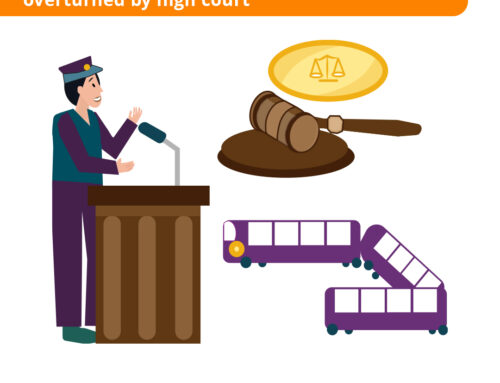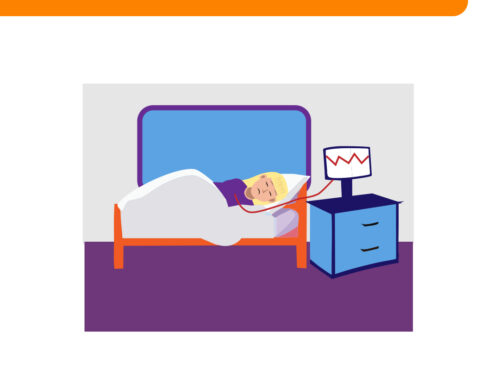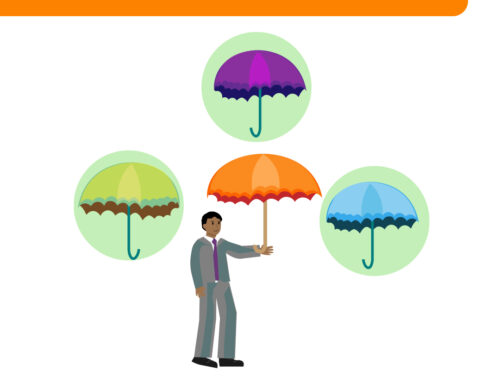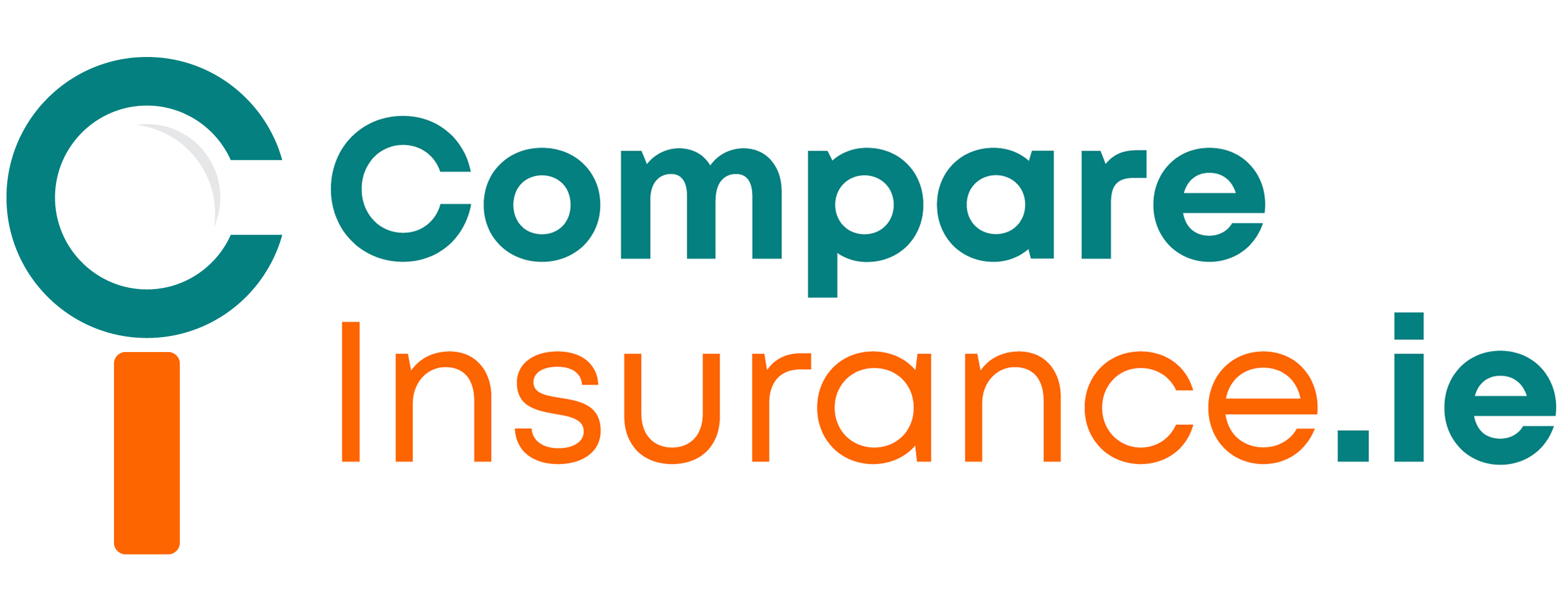Income protection premiums are based on a number of factors such as your age, your health and family health history, your lifestyle and job, and the amount of cover you require.
However, your hobbies can also determine the premium you pay for income protection. Having certain hobbies that are deemed risky can mean that you face higher premiums for income protection, exclusions on your policy, or you may be declined for income protection.
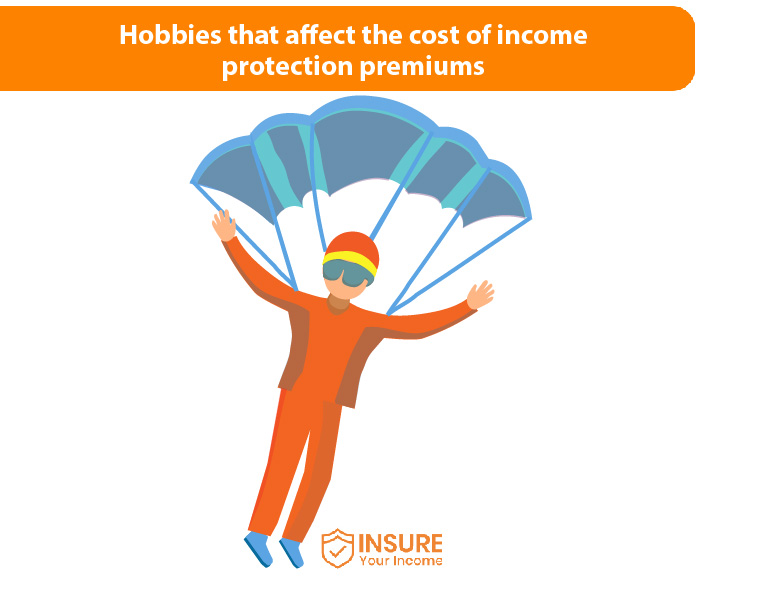
Table of Content
Why can hobbies affect the cost of income protection ?
Essentially, if you are perceived to present an increased risk to an insurer, you will pay more for cover or you may not be able to avail of certain forms of insurance. Underwriting is the process by which insurers determine the risk you present to them in offering you insurance cover.
All of the factors that affect the likelihood of you making a claim on your income protection policy may be subject to certain underwriting decisions. So your age, health, family health history, smoking status,and your job or hobbies can all be considered to present a normal level of risk or a higher level of risk to the insurer.
In terms of hobbies or activities you undertake, you may be accepted without providing further information, or you may be asked to provide the insurer with further information, in the form of a questionnaire. This will ask you for detailed and specific information on your hobby, how you engage in that hobby, whether you compete etc. This information will guide the insurer to an underwriting decision on your case.
Risk factors considered by underwriters
There are a range of underwriting decisions, based on the level of risk you present to your prospective insurer. Here are some of the key decisions you may face.
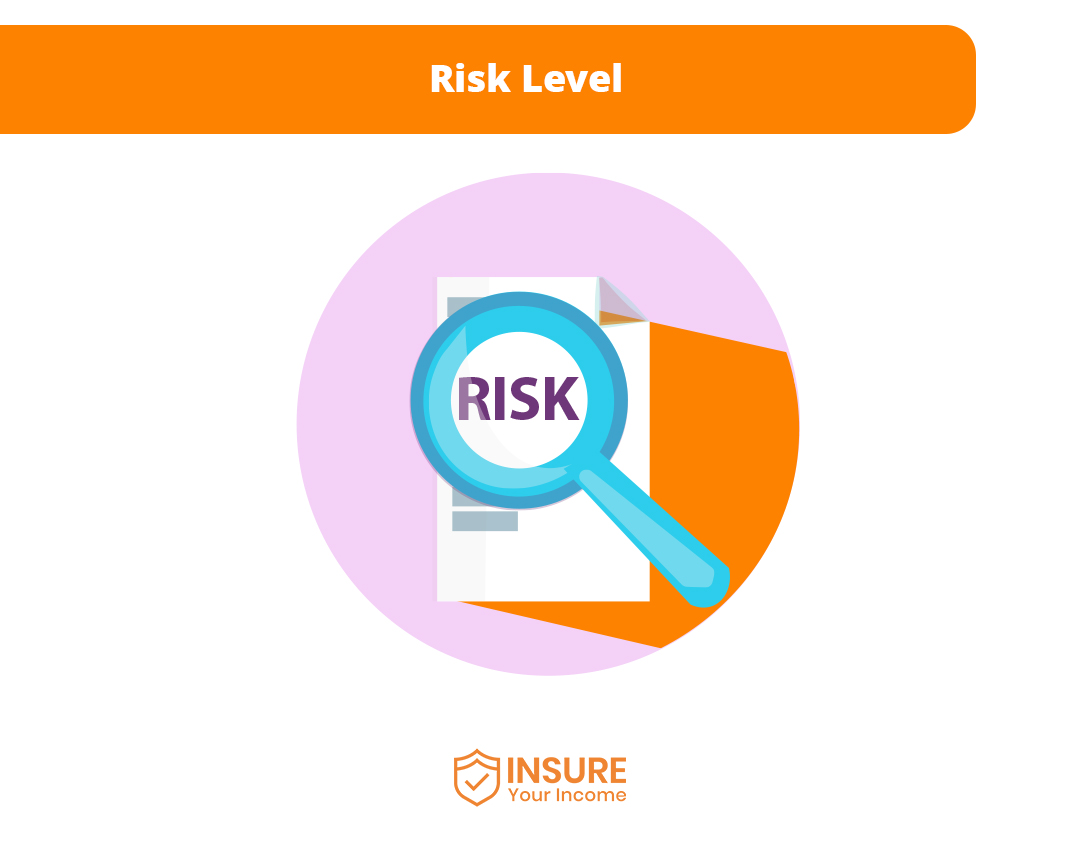
Normal premium terms
This is where you do not present an additional risk to the insurer. Your hobbies are not considered to lead to an increased likelihood of a claim.
Premium loading
Your hobby has been identified as leading to an increased risk to the insurer. You will need to pay an additional premium to avail of income protection cover.
Cover with altered terms
You will be accepted for income protection cover but you may face, for example, a longer deferred period. A deferred period is the time period before you receive benefit from your income protection policy.
Apply Exclusion
The risk you present is too high to apply premium loading and you may not be covered by your income protection policy when you engage in the activity in question. For example you may not be covered for injuries associated with your hobby specifically.
Postpone
This decision generally relates to health risks rather than hobbies. This is usually where a health outcome is yet to be determined eg. awaiting the results of tests.
Decline
Where the risk that you present to an insurer is too high and is likely to remain high. Engaging in professional boxing, for example, would almost always lead to you being declined for income protection.
High risk hobbies that could affect your income protection premium
Which hobbies are considered high risk ? It is really important to be open and frank in discussing your hobbies and how they may affect your premium for mortgage protection as you may not realise that your hobbies are considered high risk
In some circumstances, your hobbies might come under the umbrella of higher risk activities but be accepted under normal terms. For example, if you enjoy diving but dive only once or twice a year with a professional instructor on holiday you are unlikely to face an increased premium for income protection.
It is also really important to note that insurers vary in their risk assessment of various hobbies, and it is really worthwhile shopping around as you might find that quotes vary between insurers. Most insurers will want to know about the following hobbies, but this may not be an exhaustive list, so if in doubt check with your prospective insurer.
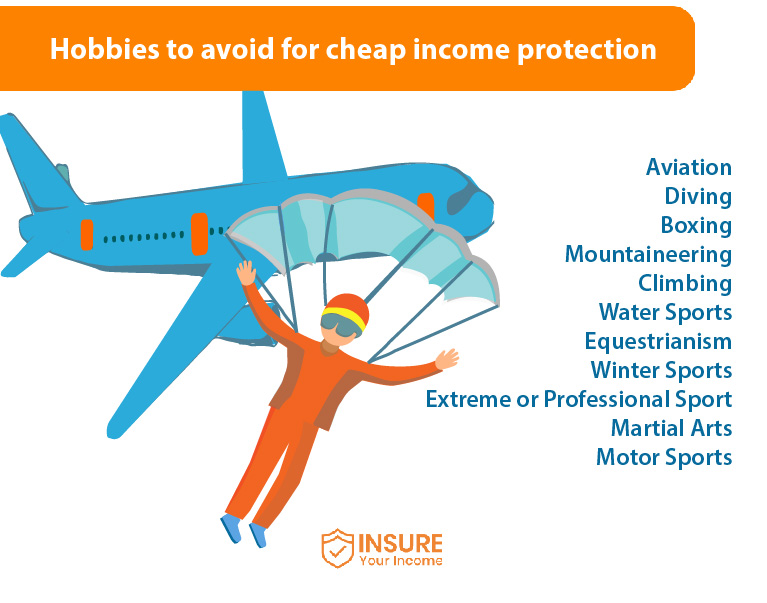
Aviation
Private or recreational aviation or flying is considered to be a high risk activity although your hours of experience, the amount of times you fly, and the type of aircraft will also affect the risk you present to an insurer.
Skydiving, base jumping, bungee jumping or parachuting would also be considered extremely high risk and would be unlikely to be acceptable to insurers.
Diving
Scuba diving occasionally under supervision, as mentioned above, may not cause you an issue or may require a loading on your premium. However, diving alone or unsupervised, or engaging in cave or pothole exploration or wreck exploration will likely be looked on as riskier by insurers.
Boxing
Boxing is inherently risky and amateur boxing may require an exclusion on your income protection policy. Professional boxing is likely to cause you to be declined for income protection due to the high levels of risk involved.
Mountaineering/ Climbing
Amateur mountaineers may face a longer deferred period, loading, or exclusions, depending on factors such as the amount of time they engage in their hobby per year, whether they climb in a group or whether they are members of the British Mountaineering Council, for example. Solo or unroped climbs would most likely cause you to be declined for cover.
Climbing or abseiling, likewise, would be considered on the basis of how often you undertake the activity, whether you are in a group or supervised, and your experience.
Water Sports
Sailing, Kayaking, Surfing, Kite Surfing, jet skiing, or other water sports would be considered on the basis of how often you engage in the activity, your experience, and what specific form of the sports you engage in.
Another activity that can attract higher premiums for income protection which can surprise people is open water swimming. Open water swimming or sea swimming is considered a risky activity and may require a loading on your income protection premium.
Equestrianism
If you enjoy private hacking or pony trekking, you may be accepted for income protection on normal terms. Horse racing or hunting would be considered higher risk and a loading or exclusion may be applied
Winter Sports
Skiing occasionally would likely be accepted by insurers at normal terms. Other winter sports, however, may face a loading on the premium or an exclusion depending on the sport and how often you engage in it etc.
Extreme or Professional Sport
Enjoying rugby, golf, gaelic games or other sports as a passtime will almost always be accepted under normal terms by insurers. However, professional sport will be considered as higher risk.
What is defined as an extreme sport may also surprise you. Baseball, or American football are not played widely in Ireland but can lead to a premium loading, so it is important to check with your insurer regarding the activities you engage in.
Martial Arts
Non contact martial arts, such as judo or karate are usually accepted by insurers on normal terms. However, kickboxing, MMa, Thai boxing, or competing in martial arts tournaments may be considered differently and may lead to an exclusion being applied on your policy.
Motor Sports
Occasional go-karting or corporate outings may not cause any issue. However, any other form of motor sports may result in exclusions depending on the vehicle involved and engine type, or whether you compete in events etc. would need to be discussed with your insurer and may lead to exclusions on your income protection policy.
Get an income protection quote today
We can help you to find income protection, even where your hobbies may cause an issue with income protection insurers.
Check out our online calculator which will help you get started.



